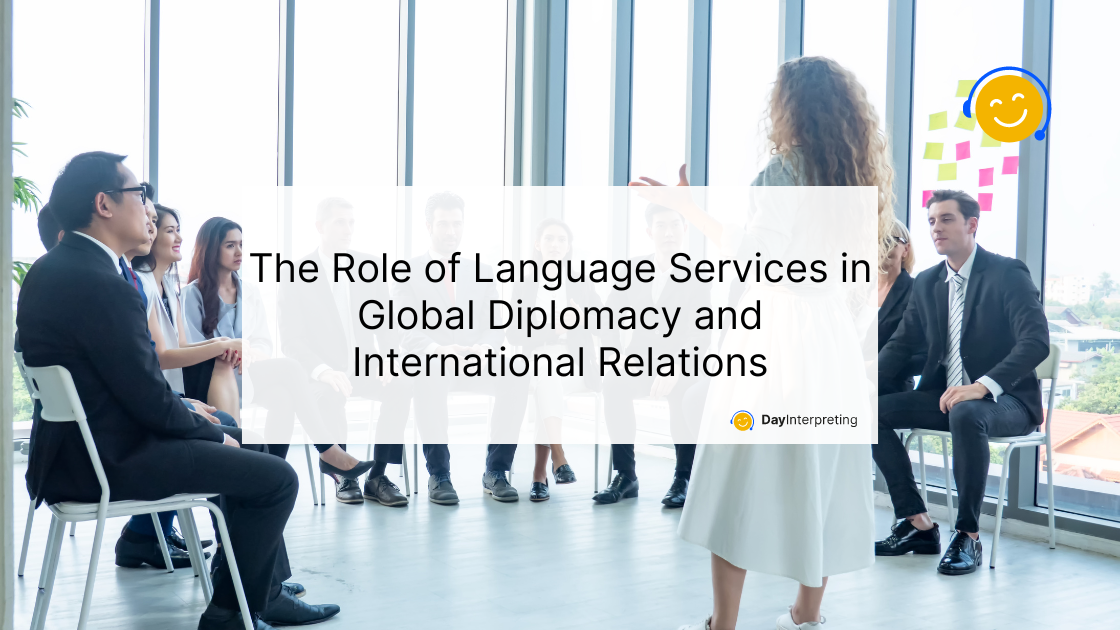Effective communication is paramount in global diplomacy and international relations. Language services serve as vital tools for fostering understanding, negotiation, and collaboration among nations and cultures. In this article, we’ll delve into the multifaceted role of language services in shaping diplomatic engagements, promoting cross-cultural dialogue, and advancing international cooperation.
Facilitating Cross-Cultural Communication
Interpreters play a crucial role in diplomatic meetings, conferences, and summits, ensuring seamless communication across language barriers. They provide real-time interpretation, allowing diplomats and representatives to express their ideas, negotiate agreements, and build relationships without linguistic obstacles. Interpretation services encompass consecutive, simultaneous, and whispered interpretation, adapting to diverse diplomatic contexts and protocols.
Translation of Diplomatic Documents
Translation services are essential for translating diplomatic documents, treaties, agreements, and official correspondence between nations. Translators ensure accuracy, clarity, and cultural nuance in translated texts, preserving diplomatic communications’ integrity and legal validity. Translated documents enable governments, international organizations, and diplomatic missions to effectively convey messages, policies, and commitments across linguistic borders.
Promoting Diplomatic Relations and Negotiations
Language services serve as bridges for diplomatic outreach, enabling diplomats to engage with foreign counterparts, stakeholders, and public audiences in their native languages. This personalized approach enhances rapport, trust, and mutual understanding, fostering positive diplomatic relations and facilitating dialogue on shared priorities, challenges, and opportunities.
Mediation and Conflict Resolution
Interpreters and translators play crucial roles in mediation and conflict resolution efforts, facilitating dialogue, de-escalating tensions, and promoting peaceful resolutions. They navigate sensitive diplomatic discussions, convey nuances accurately, and foster trust and transparency among conflicting parties. Language services contribute to building bridges of reconciliation, promoting stability, and preventing misunderstandings that can escalate into conflicts.
Enhancing Global Cooperation and Development
1. Language Services in International Organizations
International organizations rely on language services to facilitate multilateral cooperation, policy development, and program implementation. Interpreters and translators support meetings, conferences, and working groups, enabling collaboration among diverse stakeholders from member states, non-governmental organizations (NGOs), and civil society. Language services ensure that discussions, decisions, and outcomes are accessible and inclusive to all participants.
2. Cultural Diplomacy and Public Diplomacy
Language services are pivotal in cultural and public diplomacy initiatives, promoting mutual understanding, cultural exchange, and soft power projection. Cultural interpreters and translators convey cultural nuances, traditions, and values, fostering appreciation and dialogue among global audiences. They build positive perceptions of nations, enhance cultural diplomacy efforts, and strengthen people-to-people connections.
Embracing Technological Advancements in Language Services
Digital Tools for Diplomatic Communication
Technological advancements, such as virtual interpreting platforms and AI-driven translation tools, revolutionize diplomatic communication. Virtual meetings with multilingual capabilities enable diplomats to engage remotely in real-time, overcoming geographical barriers and optimizing efficiency. AI-powered language technologies support rapid translation of documents, data analysis, and terminology management, augmenting the capabilities of language services in diplomatic contexts.
Cybersecurity and Confidentiality
In an era of digital diplomacy, cybersecurity, and confidentiality are paramount concerns for language service providers in diplomatic engagements. Secure communication channels, encryption protocols, and data privacy measures safeguard sensitive diplomatic information during interpretation, translation, and document exchange. Ensuring the integrity and confidentiality of diplomatic communications builds trust and credibility in language services’ role in global diplomacy.
Language services are not only crucial for communication but also for safeguarding sensitive information, especially in the context of international diplomacy. Implementing frameworks to ensure security and privacy is essential. Governments and organizations can bolster their cybersecurity measures, utilizing tools like a cybersecurity RFP template to outline specific requirements when sourcing language service providers who prioritize data security.
Language Services as Diplomatic Enablers
As we conclude our exploration of the role of language in global diplomacy and international relations, we recognize its indispensable contribution to diplomatic engagements, cross-cultural understanding, and global cooperation. Interpreters, translators, and language technologies are diplomatic enablers, facilitating dialogue, negotiation, and collaboration among nations, organizations, and stakeholders. Embracing technological advancements, promoting linguistic diversity, and upholding professional standards are key pillars in harnessing the full potential of language services to shape a more interconnected and harmonious world.





0 Comments